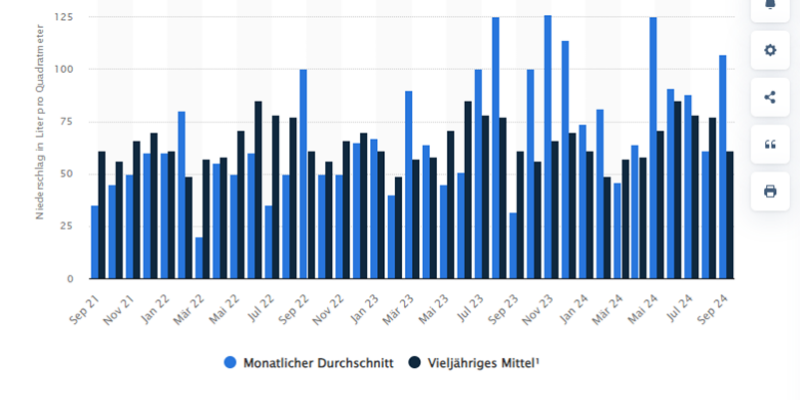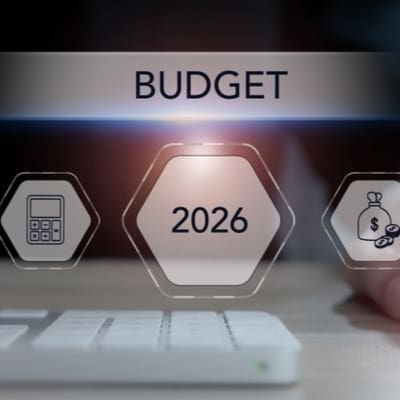Rain, hail, and even snow. In July 2024, Germany saw a record in precipitation, with more liters per square meter than any year since tracking began in 1881 (Zeitonline). The Statista graph of monthly precipitation paints a similar picture.
Not only was the weather bad, but it also contributed to a rise in outbound travel from Germany. This situation strained hotel demand, and many hotels struggled to meet their targets, with some resorting to price dumping. But what should hotels do in such an environment? Should they lower prices or maintain them? What other strategies can capture demand?
To address this, let’s establish a key principle: as a hotel, you can’t control demand; you can only control your share of it. For example, imagine a small town with four hotels, all equal in size and standard. Each should capture 25% of the total guests—that’s the “fair share.”
For example, as a hotel on the Baltic coast, we can’t control summer rain, just as an alpine hotel can’t control snowfall in February. What we can do is ensure we capture our fair share by following these three steps:
- Know if we’re getting our fair share
- Adjust our expectations
- Change our commercial strategies accordingly
Know if we’re getting our fair share
The first step is to subscribe to a market share report provider, such as Costar in Germany, and define a competitive set of 5-6 hotels that target similar guests. We do this to be able to track three very important key performance indicators: Market Penetration Index (MPI), Average Rate Index (ARI), and Revenue Generation Index (RGI). RGI is crucial, as it measures your RevPAR against the average RevPAR of your competitors. An RGI above 100 means you’re earning more than your fair share.
The next key is to set a RGI target together with your budget. For now, let’s assume a target of 100 RGI. If in that summer month where it rained, we end up with a RevPAR is €75 while the competition averages €70, our RGI is 107.14, indicating we’re getting more than our fair share—even if our budgeted RevPAR was €90. Hence, we did a good job!
 Adjust expectations
Adjust expectations
When budgeting, its not very inspiring to be pessimistic and predict extreme rain, but if it happens, expectations need to adjust. Lower demand means lower income, and we should respectively try to decrease costs. Whilst our RevPAR target might be adjusted downward, we must ensure we still achieve our RGI goal. This will tell us if we did a good job, regardless of weather conditions. The weather is simply out of our control, and there is no reason to bang our heads against a wall that we cannot move. What matters is, realizing, accepting and optimizing the situation.
Adapt commercial strategies
In a rainy summer, maintaining “sunny summer prices” will most probably lead to lower occupancy and revenue. While it’s best to avoid price wars, you might need to adjust prices if the whole market does. Yet, a better alternative than dumping your BAR price is to fill your hotel with opaque, non-public business at lower rates—such as contracting FIT partners or offering a good price to a good group. Optimization of distribution also plays a crucial role, especially investing in visibility. Finally, one of the most important things will be to be extra proactive in the sales and marketing efforts.
Conclusion
It’s important to be optimistic when setting targets and establish both RevPAR and RGI goals. When uncontrollable circumstances arise, manage expectations, adapt to the situation, and aim to outperform the competition. And remember, this approach holds equally in both good as in bad times.



 Adjust expectations
Adjust expectations
















